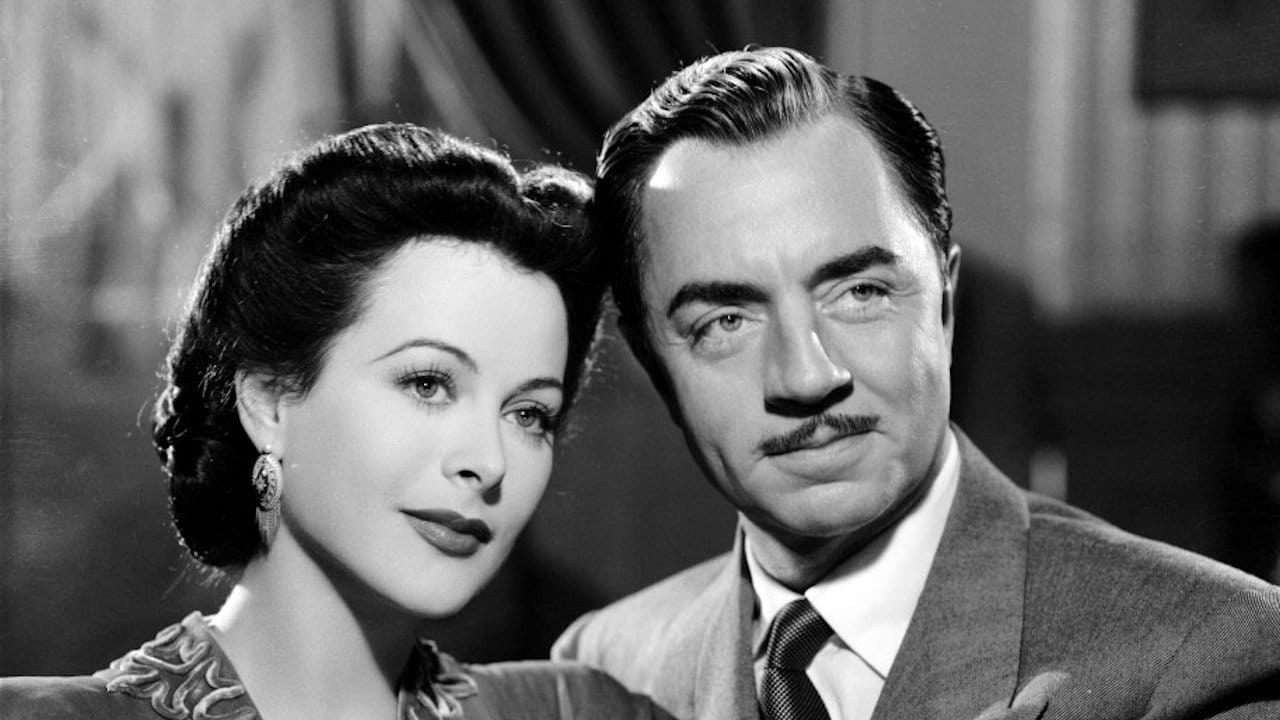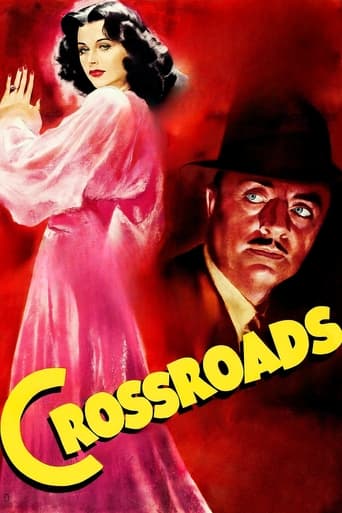

Double identity drama about a diplomat with amnesia commences in fine style, but sags in the telling due both to lack of action and a surfeit of dialogue. Perhaps even more important, however, is the lack of a credible plot - so many details are either blatantly wrong or ring so bewilderingly false, few viewers will not be three or four jumps ahead of the allegedly intelligent but naive and slow-witted William Powell character. Even his empty-headed wife who spends just about the entire movie modeling the most exquisite gowns has more sense. And why would such a ravishingly attractive girl saddle herself to such a poor fish of a dimwit who can't even make up a good excuse to keep a rendezvous with the police? Why not simply tell the truth? But then of course there'd be no film. The director strives mightily to maintain interest though this increasingly disheartening charade with all sorts of pictorially striking shots and even cuts, such as the sequence on the bridge with the camera dollying in from an incredibly high angle and then dissolving from long shot to medium to close-up to ultra-close. It's also a sad waste of fine players - Claire Trevor for example, and particularly Rathbone whose character is such an unintentional cretin we have little interest in him at all. Rathbone seems to have realized the emptiness of this pasteboard villain. His acting is dispirited. He just goes through the motions.
... View MoreI don't think that's redundant. Think of how many mysteries in which the culprit/villain/murderer is known from the beginning of the film (for instance, "Sleuth"). Those are 'cat-and-mouse' stories, and it's a matter of time before the perp is found out."Crossroads", however, remains mysterious until the very end, and the mystery deepens as the film unfolds. William Powell, at his urbane best, is the amnesia victim who may or may not have been a criminal before his accident. Hedy LaMarr is his devoted wife and is gorgeous but with little else to do. Basil Rathbone is in one of his patented Loathsome Villain roles and gives the picture the rating I gave it.The picture is extremely well written and holds the interest throughout its 84 minutes, which in this case fly by - no chance to check your watch in this one. Don't know if it was an 'A' or a 'B' at the time, but "Crossroads" is one of the best unheralded movies ever made.
... View MoreNot a lot to add to what others have suggested, but this is a very lovely bit of movie making.Powell really gets to display the acting chops that he had in spades. His ability to show pain, uncertainty and angst is not something that he got to do a lot, and it's enjoyable here. And the writing really helps. Powell seems, in so many ways, to be a contemporary actor, despite the thin mustache! He was just such a natural!Hedy is mostly eye candy, but that's not her fault. Felix Bressart puts in a spot-on performance. He really nails his role beautifully. Trevor and Rathbone are solid, as always.And this movie is really shot well, too. Great B & W photography that helps maintain a noir- esquire mood.
... View MoreWilliam Powell is a rising diplomat whose past may - or may not - have come back to haunt him in "Crossroads," also starring Hedy Lamarr, Basil Rathbone, and Claire Trevor. Powell plays David Talbot, a successful man with the French government, who is happily married to Lucienne (Lamarr) when he is accused of being a criminal named Jean Pelletier. He is blackmailed by the slimy Sarrou (Rathbone) and the flashy Michelle (Trevor). In fact, Talbot has amnesia and doesn't remember anything before the last 13 years. Is he Pelletier or isn't he? This is an interesting story with a huge hole in it, but nevertheless, the cast is talented and the story intriguing enough to keep the viewer interested. Powell is excellent in a serious role, which by this time had become somewhat unusual for him, and Lamarr is lovely as his wife and looks beautiful. No surprise there. Rathbone and Trevor make a neat pair of crooks."Crossroads" makes for fun watching. Just don't think about it too much.
... View More